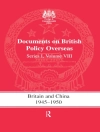Applying cutting-edge psychiatric theories to an analysis of online Taliban literature in four languages, Neil Krishan Aggarwal constructs a game-changing narrative of the organization’s broad appeal and worldview.
Aggarwal, a cultural psychiatrist, focuses on the Taliban’s creation of culture, evoking religion in Arabic and English writings, nationalism in Dari sources, and regionalism in Urdu texts. The group also promotes a specific form of argumentation, citing religious scriptures in Arabic works, canonical poets in Dari and Urdu writings, and scholars and journalists in English publications. Aggarwal shows how the Taliban categorize all Muslims as members and all non-Muslims as outsiders; how they convince Muslims of the need for violence; and how they apply the insider/outsider dichotomy to foreign policy. By understanding these themes, Aggarwal argues, we can craft better countermessaging strategies.
Cuprins
Acknowledgments
Transcription and Translation Guide
Preface
1. Channels of Communication in the Virtual Emirate
2. Mullah Omar’s Leadership in the Virtual Emirate
3. Identity in the Virtual Emirate
4. Jihad in the Virtual Emirate
5. International Relations in the Virtual Emirate
Epilogue
Notes
References
Index
Despre autor
Neil Krishan Aggarwal is an assistant professor of clinical psychiatry at Columbia University, a cultural psychiatrist in private practice, and a research psychiatrist at the New York State Psychiatric Institute. He is also the author of the Columbia University Press title
Mental Health in the War on Terror: Culture, Science, and Statecraft (2015).












